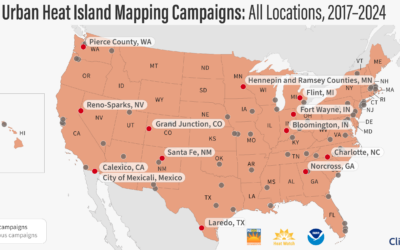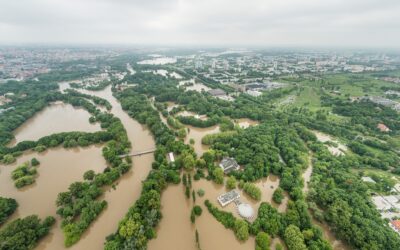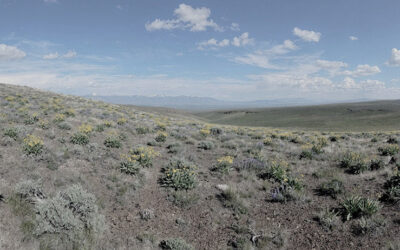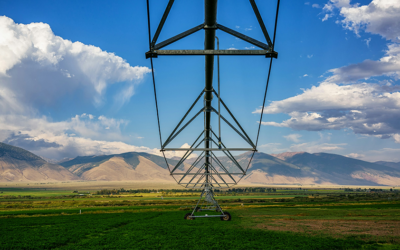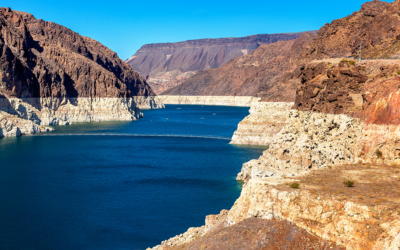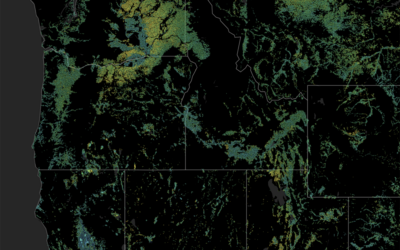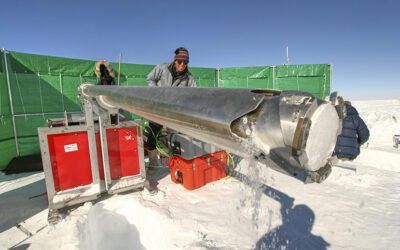News & Announcements
Working to Solve our Most Challenging Environmental Problems
DRI’s research calls on the expertise and methods of scientists from multiple scientific disciplines. More than 600 highly-skilled scientists, engineers, technicians, students, and staff work collaboratively within and across three research divisions, focused on understanding and answering critical science questions about global climate change, water quality and availability, air quality, the sustainability of desert lands, life in extreme environments, education, and more.
In Reno, Cortez Masto Highlights $9.2 Million She Secured To Support Nevada’s Clean Energy Boom, STEM Education, And Workforce Development Initiatives At DRI
U.S. Senator Catherine Cortez Masto visited DRI for a tour of their upgraded facilities to highlight over $9.2 million in investments she secured through recently passed bipartisan legislation to support DRI’s critical research projects that are helping grow Nevada’s clean energy economy, protect the environment, and preparing students for careers in STEM fields.
Reno/Sparks selected to be part of Urban Heat Mapping Campaign
Several municipal, county, and Tribal governments and community groups based in the Reno-Sparks area are teaming up to map the hottest parts of Reno, Sparks, and adjacent portions of Washoe County.
DRI’s Christine Albano Co-authors Groundbreaking New Research in Groundwater’s Role in Ecosystem Sustainability
A new study published in Nature Water used satellite data spanning 38 years to examine how groundwater-dependent ecosystems (such as wetlands, meadows, and springs) in California respond to fluctuations in groundwater levels. The research can help shed light on how water management practices can best account for ecosystem needs in addition to those of human society.
A Fresh Look at the Drivers of Extreme Flooding
A new study in Science Advances finds that compounding effects of flood drivers can complicate and exacerbate the risk of extreme floods in watersheds around the world. DRI’s Guo Yu, Ph.D., assistant research professor of hydrometeorology, co-authored the research.
Climate Engine Launches New Website to Facilitate Drought and Vegetation Monitoring
Climate Engine is partnering with the Bureau of Land Management (BLM) to guide drought planning on BLM-managed lands with support from NOAA’s National Integrated Drought Information System (NIDIS).
NSHE Board of Regents Renews Contract for DRI President Acharya
Dr. Acharya’s first term as president of DRI has been marked by notable achievements and leadership, particularly in navigating challenges such as the COVID-19 pandemic and financial constraints. His strategic priorities focusing on optimizing performance, elevating awareness, and cultivating engagement have helped drive the institution forward.
Xiaoliang Wang and Gabrielle Boisramé Receive 2024 Board of Regents Awards
Nevada System of Higher Education (NSHE) Board of Regents awards Xiaoliang Wang, Ph.D., with the 2024 Mid-Career Researcher Award and Gabrielle Boisramé, Ph.D., with the Rising Researcher Award
Ancient Pollen Trapped in Greenland Ice Uncovers Changes in Canadian Forests Over 800 Years
The new study helps illuminate how changes in forest composition followed European settlement and natural changes in climate.
New Study Reveals Impacts of Irrigation and Climate Change on Western Watersheds
DRI’s Justin Huntington coauthored the new study, led by researchers at the University of Montana and the Montana Climate Office, which published mid-December in the Nature Journal, Communications Earth and Environment.
DRI, UNLV to Partner on Regional Climate Innovation Consortium
The National Science Foundation (NSF) today announced a multi-institutional consortium – which includes UNLV and DRI – to confront the climate challenges facing the desert Southwest and spur economic development in the region.
A New, Rigorous Assessment of OpenET Accuracy for Supporting Satellite-Based Water Management
A new study offers a comprehensive multi-model, large-scale accuracy assessment of an operational satellite-based data system to compute evapotranspiration. The researchers found that OpenET data has high accuracy for assessing evapotranspiration in agricultural settings, particularly for annual crops like wheat, corn, soy, and rice.
The First Assessment of Toxic Heavy Metal Pollution in the Southern Hemisphere Over the Last 2,000 Years
An international team of scientists led by DRI found evidence of Southern Hemisphere heavy metal pollution preserved in Antarctic ice cores from early Andean cultures and Spanish Colonial mining that predates the Industrial Revolution by centuries.

